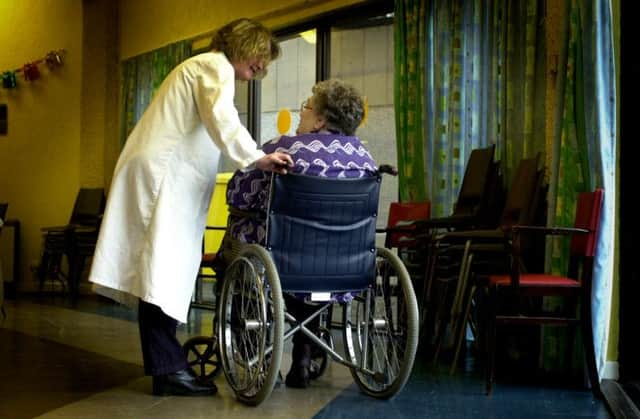Carers of people with dementia have new hope


This news, alongside the Scottish Government’s dementia strategy, brings hope to current and future generations that there is a commitment to fighting back against this disease, which blights the lives of so many.
There are about 71,000 people in Scotland living with dementia, and probably many more who haven’t yet been diagnosed. Year on year, this number grows. Behind these figures are not only those living with dementia, but also the friends and family caring for them. Like many conditions, the focus is often solely on the condition itself and relatively little information or support is provided for carers. As well as investment into a cure, we urgently need investment and commitment to supporting those caring for sufferers.
Advertisement
Hide AdAdvertisement
Hide AdMany people caring for someone with dementia struggle with the impact of caring on their own health and wellbeing. The Carers Trust’s recent research – A Road Less Rocky: Supporting Carers of People with Dementia – highlighted key critical points where health and social care professionals miss opportunities to provide carers with vital information, advice and support.
Our research found that about half of the carers in Scotland questioned were given no advice on the physical aspects of caring for someone with dementia, such as managing medication, lifting, and coping with incontinence. Just as importantly, about half also received no support on emotional aspects, such as dealing with aggression and being able to talk separately about their own needs.
Caring for someone with dementia is unbelievably hard. You are watching the person you love change and disappear slowly and painfully. But there is support available. Local carer support services, such as the carers’ centres in the Carers Trust Scotland network, can guide carers through the journey – from diagnosis to end of life support. We would strongly advise people to contact their local carers centre at the earliest possible stage. They can help them source vital information and practical support when they need it and provide much-needed emotional support.
• Florence Burke is director of Carers Trust Scotland.
SEE ALSO